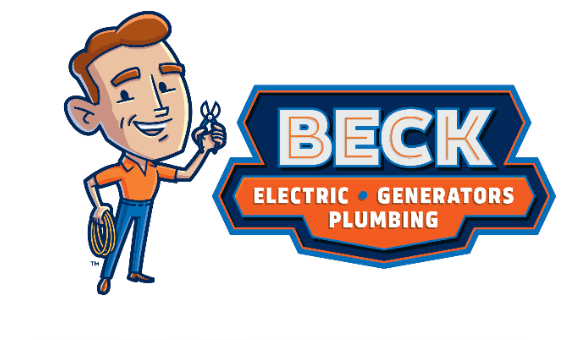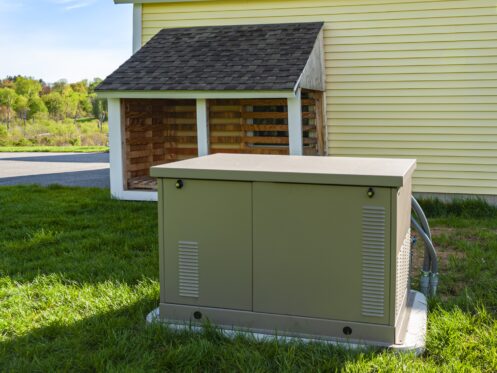Power loss can occur for a variety of reasons, such as the result of a natural disaster, severe weather or the power grid failing. Without power, our food is spoiled, communication is cut off and the systems that protect our homes no longer work, effectively presenting a dangerous situation. Many homeowners are procuring whole-house generators to prevent disruption and maintain safety. If you are considering a whole-house generator, there are six factors you must keep in mind.
1. Number of Watts Needed
The generator’s wattage is the most important factor when choosing what size, you need for your home. Each appliance in your home has its own wattage needs, so it’s important to calculate how many total watts are needed to power everything. Generally, larger appliances, such as air conditioners, refrigerators and microwaves, require more wattage than smaller items, like fans or lights.
Additionally, you’ll need to factor in any surge wattage that may be necessary. This is the extra wattage your generator will need to provide when an appliance turns on and off or when multiple items are used simultaneously. Once you have determined the total wattage requirements for your whole house, you can determine the size of the generator needed.
2. The Number of Circuits in Your Home
Each circuit in your home has its wattage limit, so you’ll need to consider the number of circuits necessary for powering up everything. Another important factor to consider is the type of wiring in your home. If you have older wiring, it may not be able to handle a larger generator, and you should consult an electrician before selecting one.
3. Consider Your Budget
The generator you need will also depend on your budget. There is a wide range of generator prices, from small portables to large units capable of powering an entire house. You should determine how much you can spend and then look for a generator that meets your wattage requirements within your budget.
However, remember that the cheapest option may not always be the best. But that doesn’t mean you should buy something outrageously expensive either. It’s important to research the different models and find one that is reliable, efficient and within your price range.
4. The Square Footage of Your Home
Another thing you should consider is the square footage of your home. Homes with larger square footage will require a larger generator compared to homes that are smaller in size.
For larger houses, you may need something closer to 7500-10000 watts, depending on how much power is needed. Additionally, you’ll want to factor in any outdoor features like a pool or hot tub that may require power. These will require extra wattage, so consider this when selecting a generator.
5. The Use of the Generator
Why you need a generator is an important factor to consider when selecting one. If it’s just for occasional use when the power goes out, then something smaller will suffice. But if you plan on using it as your main source of power, then you should invest in something larger and more powerful that can meet all your energy needs.
Moreover, if you plan on using your generator for things, such as camping or tailgating, you’ll need something more portable for easy transportation. Luckily, there are lots of portable generators that can provide enough power for these types of activities and be used for powering up your home in emergencies.
6. The Location of Your House
The location of your house will also determine the size and type of generator you need. This is especially true if you live in an area with more frequent and longer power outages. In this case, you’ll want to ensure that your generator can provide enough power for a long time, so getting one with a larger wattage is necessary.
Likewise, if you live in an area with restrictions on how much noise a generator can make, you’ll want to consider something quieter and more efficient. Before selecting a generator, ensure it meets all local noise levels and emissions regulations.
Choosing the right size generator for your home can seem like a daunting task. However, taking the above six factors into consideration will ensure you make the right selection. Additionally, it never hurts to consult with professionals as an added precaution before making that final decision. If you are a resident of Canton or the surrounding areas, contact Beck Electric, Generators & Plumbing for help with choosing and installing a generator, as well as for generator maintenance and repairs later down the line. We can also meet your other home maintenance needs, as we provide plumbing and electrical services. We look forward to serving you.






